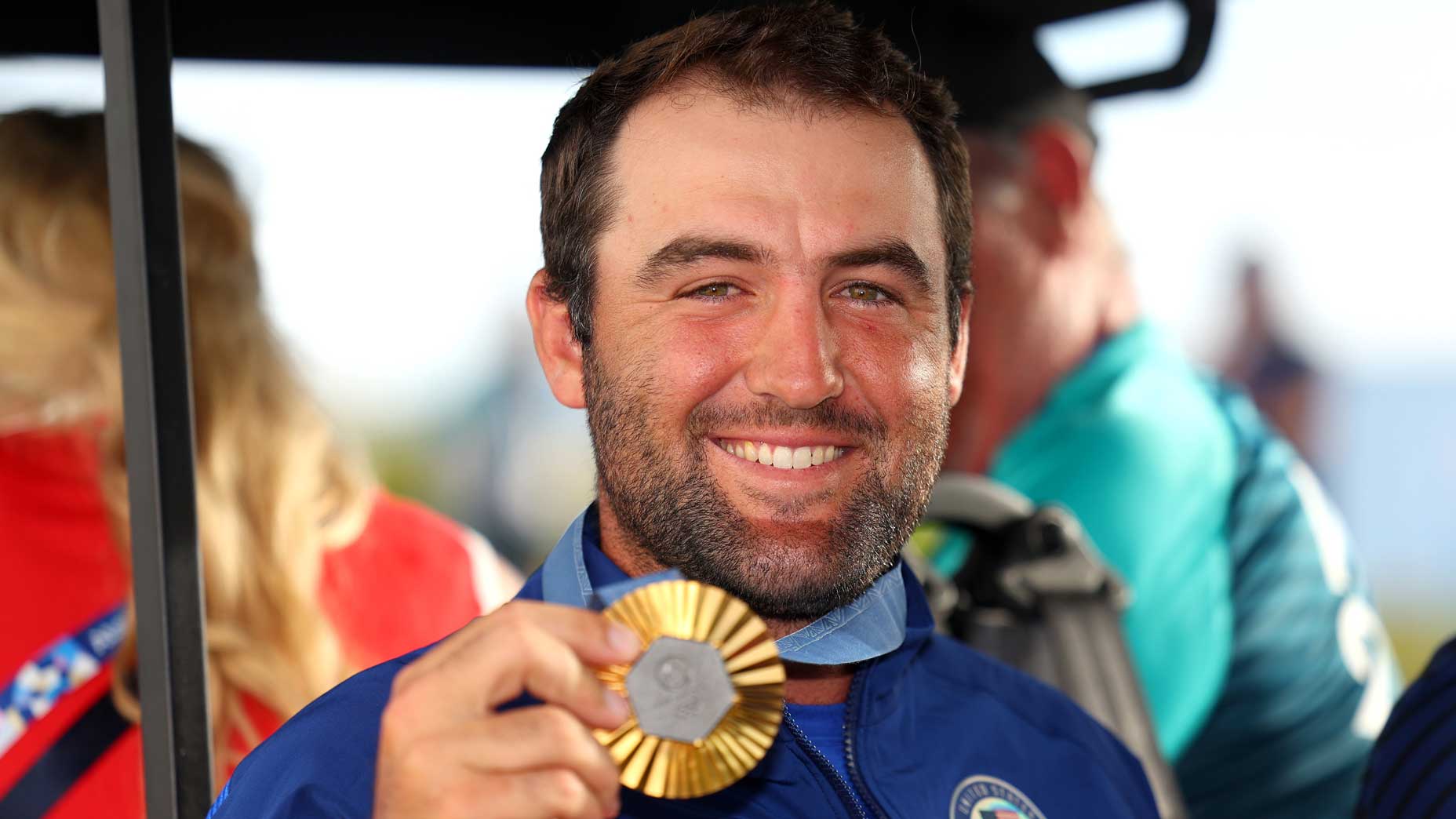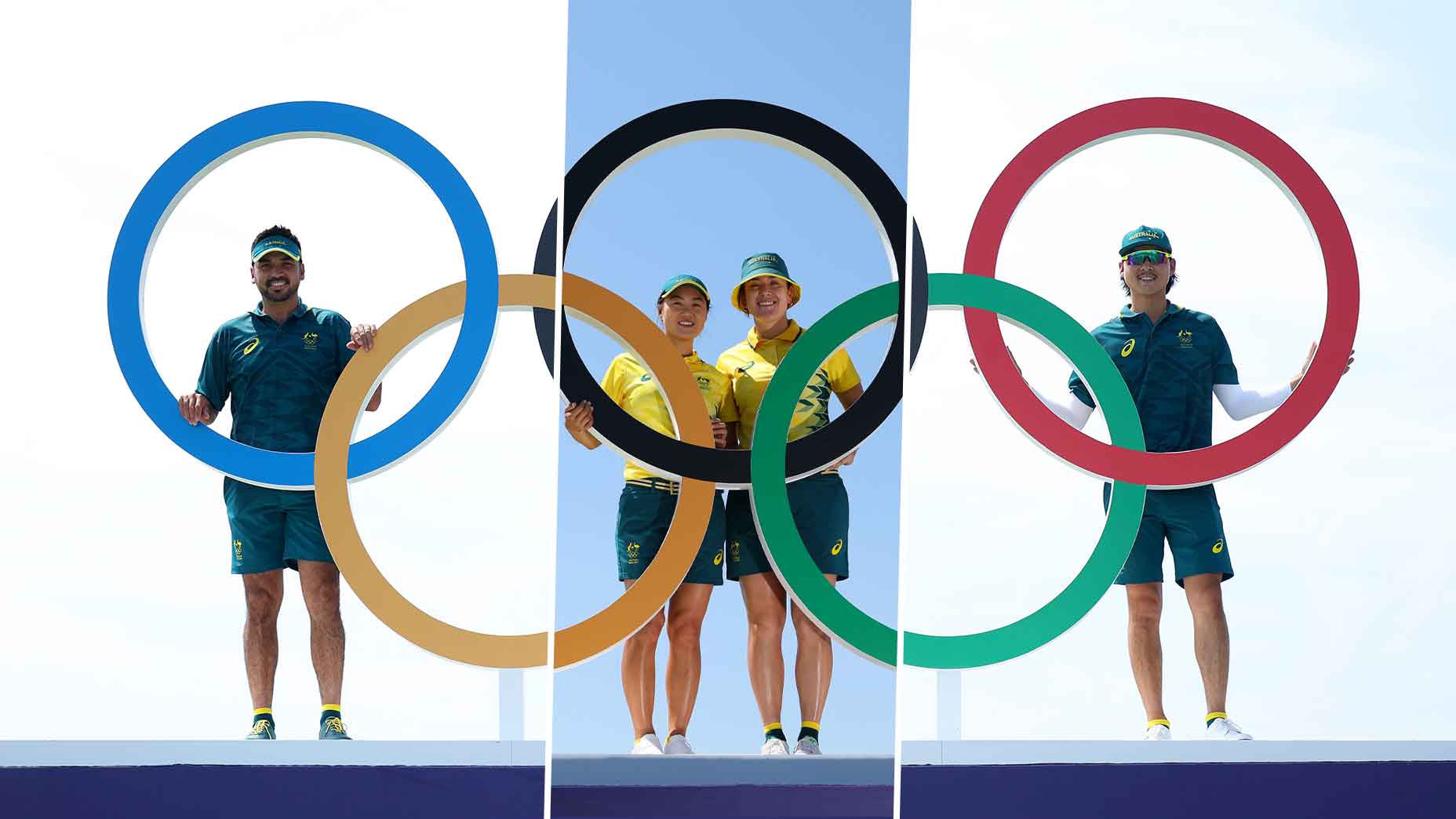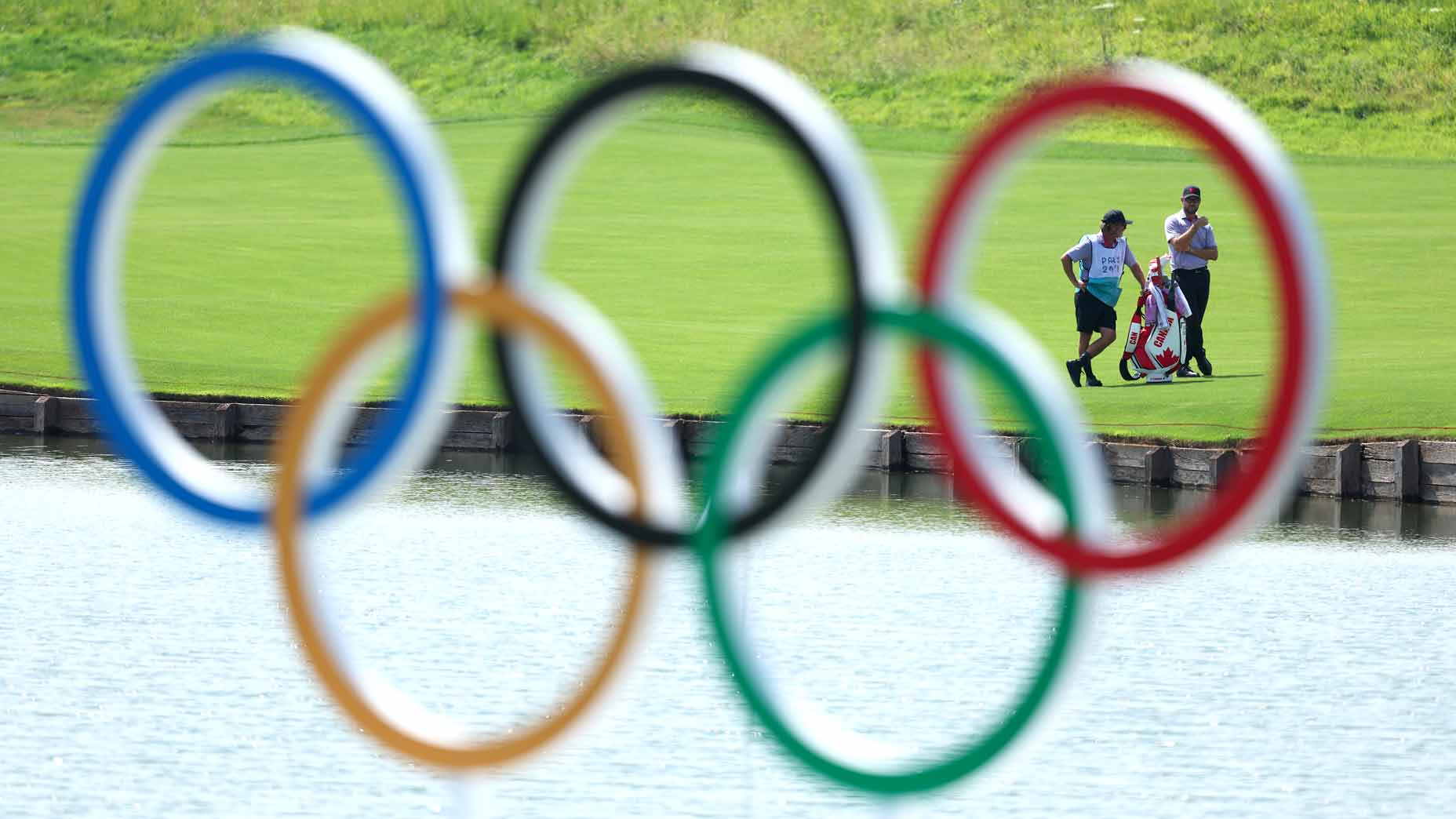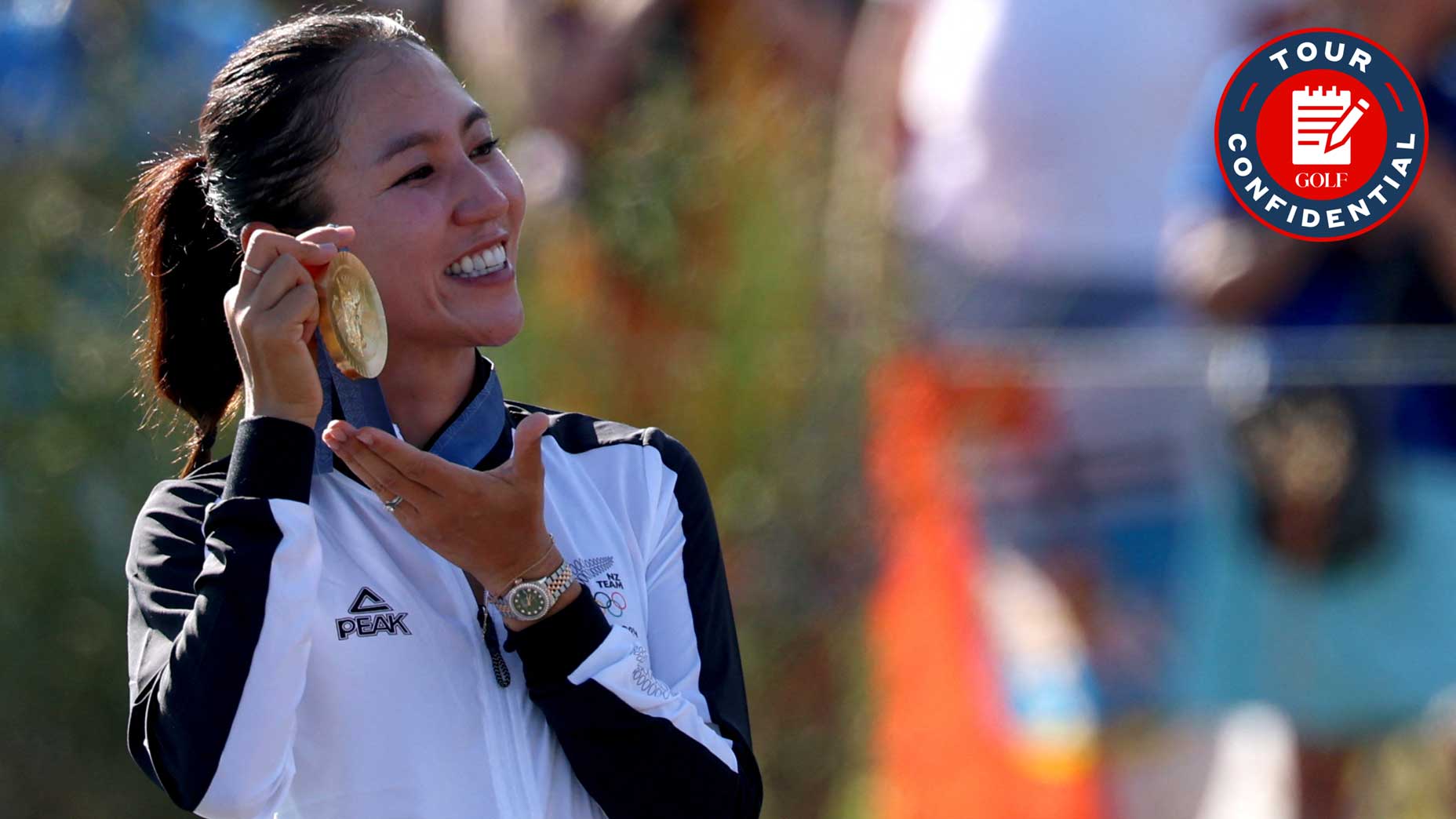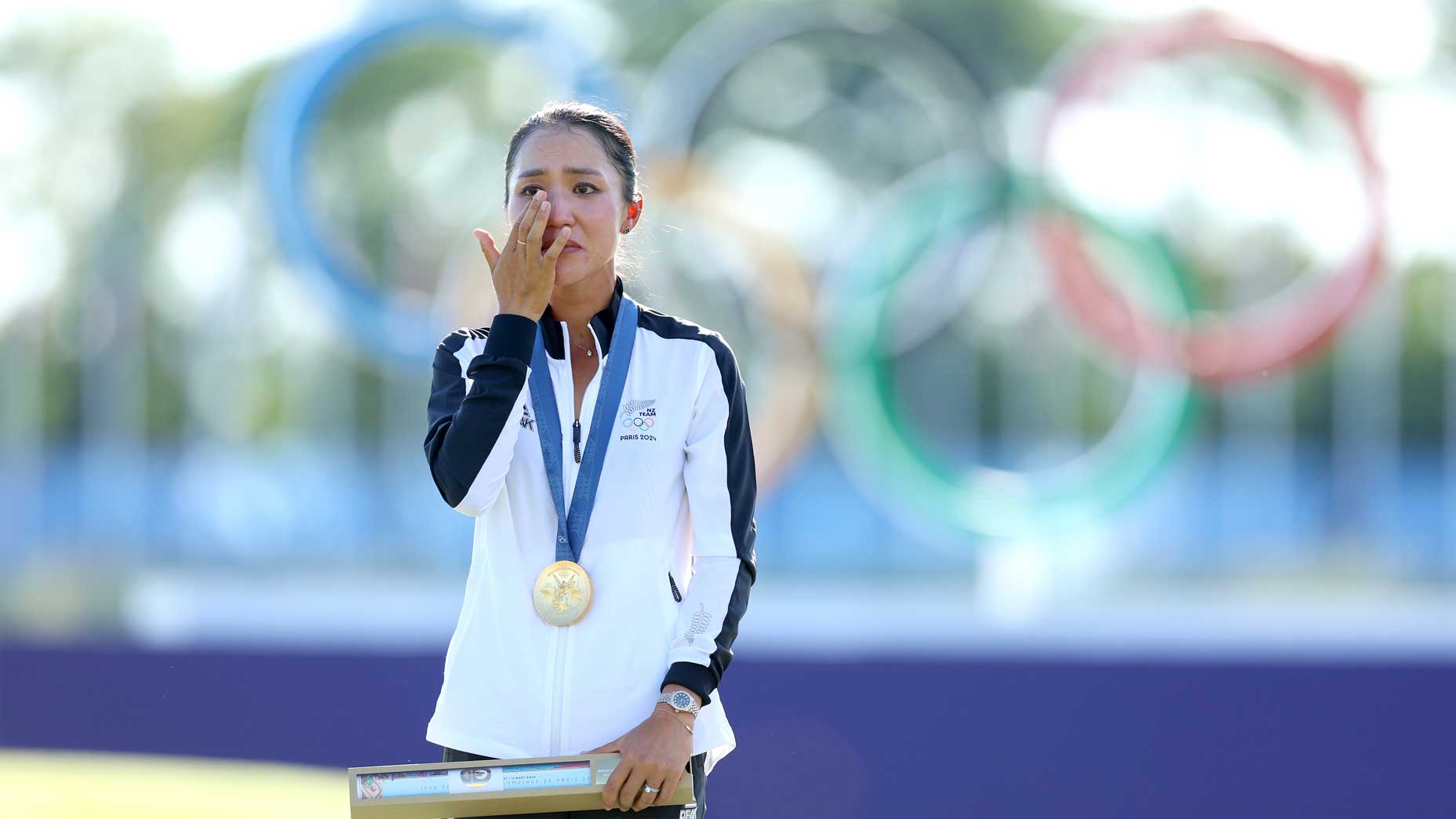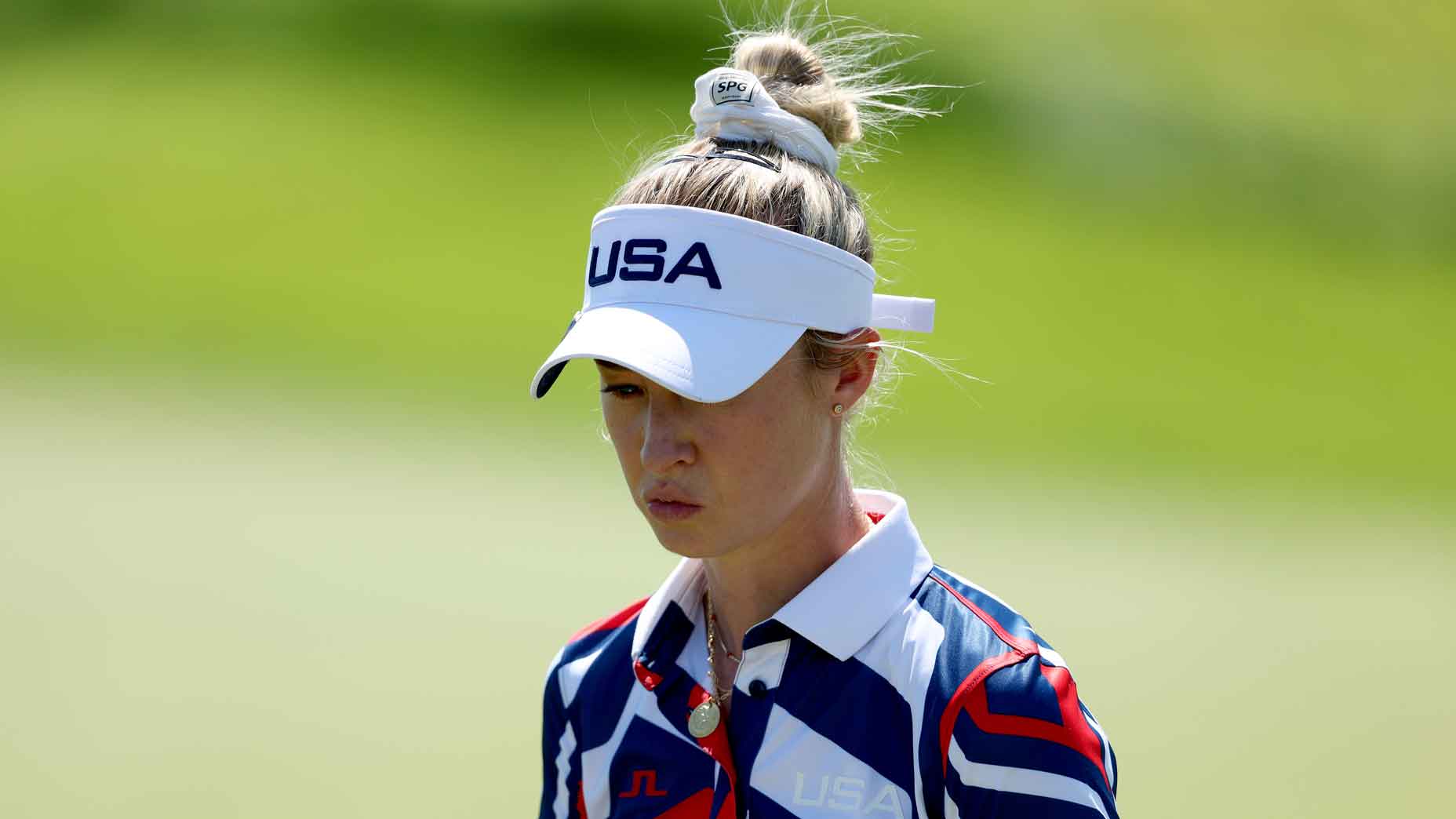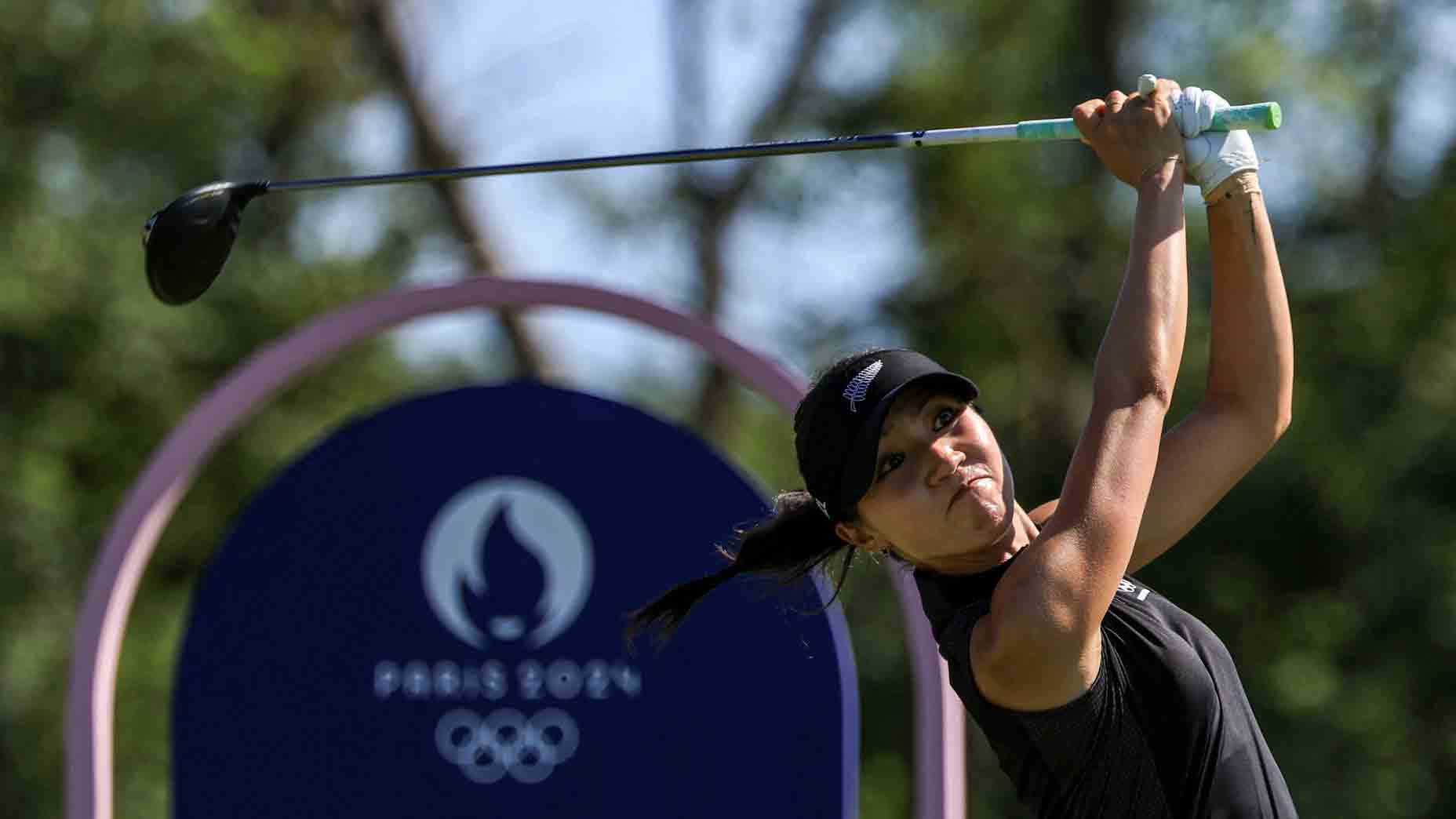In the aftermath of a thrilling championship Sunday at the Olympic men’s golf competition, several players talked about how meaningful the finale was despite there being “no money” on the line.
“I still think that the Ryder Cup is the best tournament that we have in our game, pure competition, and I think this has the potential to be right up there with it,” said Rory McIlroy after finishing his final round. “I think with how much of a s—show the game of golf is right now and you think about the two tournaments that might be the purest form of competition in our sport, we don’t play for money in it.”
Jon Rahm echoed those sentiments.
“Two of the most meaningful weeks in my career is two events where we make no money,” he said. “And I’ve said that a million times, and I’ll say it again because the Ryder Cup and [the Olympics] are up there.”
Their quotes made the rounds on social media, suggesting they’d tapped into a widely shared sentiment; for several years it’s felt as though money has driven every major decision in professional golf, so there was something refreshing, pure, elemental about a money-free Games where the best players in the world were fighting only for the elegant prize of an Olympic medal.
But there’s still a little money involved. How much?
How much did the medalists make?
McIlroy and Rahm were mostly correct. Mostly. They finished T5 for the week and, as I understand it, neither got paid for their results. Compare that to Rahm’s T7 finish at the Open Championship, which earned him $452,000, or McIlroy’s runner-up result at the U.S. Open, which won him $2.3 mil. Contending against this caliber of golfer usually pays big-time.
But Scottie Scheffler did earn some money for winning. He got paid by the U.S. Olympic and Paralympic Committee for his gold medal. There’s a uniform pay structure for athletes representing Team USA: $37,500 for gold medals, $22,500 for silver and $15,000 for bronze. Considering Scheffler had already made more than $28 million on the course in 2024, a payday in the mid-five figures may not even register. But in 2023, the median annual wage for all U.S. workers was $48,060; throw in the free Team USA gear the Schefflers got and you’re most of the way there.
(Let’s just spend one more moment on Scheffler’s 2024 earnings: he’s made $28,148,691 this year playing the PGA Tour. And we haven’t even gotten to the big-money FedEx Cup Playoffs. He’s been playing good golf.)
Tommy Fleetwood fired a final-round 5-under 66; only a 17th-hole bogey kept him from a gold-medal playoff against Scheffler. But he didn’t make a penny for his silver medal and wouldn’t have for gold, either. Team Great Britain doesn’t pay its medalists, preferring to spend on grants and training stipends instead. (British Athletics, the track-and-field support program, does reportedly pay for medals independent of the government.) He didn’t seem to mind.
Hideki Matsuyama earned bronze for Japan, a prize he’d dearly desired ever since coming up just short at his home Games in Tokyo. That desire wasn’t fueled by financials, but Matsuyama reportedly earns $6,000 for a bronze medal from Japan’s Olympic committee.
What did the medalists make last time?
Because pay structure is so different country by country, this is hardly the first time a lower finisher has out-earned someone ahead of them on the results page. In fact, last time around C.T. Pan of Taiwan (the country competes as “Chinese Taipei” in the Olympics) won the bronze in a 7-for-1 playoff. The nation’s Olympic Committee has a policy that organizes finishes by athletes by tiers and a bronze medal put Pan in “First Class, Level 3,” so he earned five million New Taiwan Dollars (NT), which converted to just shy of $179,000. That was nearly 5x the prize of gold medalist Xander Schauffele.
Could Olympic athletes get paid more in the future?
There’s something of a movement afoot to pay Olympic athletes more. This shouldn’t be surprising; there’s plenty of money involved in the Games, after all, but its athletes see very little of it. Given the movement towards player pay in college sports it’s easy to imagine more established pay at the Olympics, too.
In the world of track and field, it’s already begun. World Athletics, the international athletics federation, has pledged to pay Olympic gold medal winners $50,000 for their Paris wins, while they’ll begin to pay silver and bronze medalists at the 2028 Games.
Golfers are among the Olympic competitors who need money the least, but that doesn’t mean they’re unaware of the market forces at play. Shortly before comments from McIlroy and Rahm, Norway’s Viktor Hovland was asked about golf’s place in the Olympics.
“Well, I would say the leaderboard is pretty good, if you look at the top, if you look at the names. But it’s not up to me to say whether it should be in the Olympics or not,” he said. “I know the IOC is making a lot of money based on having golf there; so I’m sure they are pretty happy with it. I don’t know. That’s up for people to decide.”
That wasn’t a call for player pay, necessarily. Hovland won the FedEx Cup last year and made it clear that when it comes to extra millions, he doesn’t really need ’em. But it was a reminder that if someone’s making money, everyone else around that someone is gonna know.
What else do medalists get?
There are some cool exemptions that come with winning gold, too. One reason some lower-ranked pros were salivating at the thought is that the Olympic winner earns berths into all four 2025 major championships as well as the Players and, if the winner is a PGA Tour member, the Sentry.
The other medalists mostly settled for world ranking points; Fleetwood jumped from No. 14 to No. 11 with the silver.
There’s also the value of the medals themselves. Gold medals are (bear with me) mostly made of silver, silver medals are made entirely of silver and bronze medals are made of copper, tin and zinc. One economist at Oxford Economics estimated a value of $1,027 for a gold, $535 for a silver and (sorry, Hideki) just $4.60 for a bronze.
Ask any golfer’s agent and they’ll tell you any medal is worth something as they market players and negotiate a new year of contracts — and gold is worth far more. For the last several years Xander Schauffele and Nelly Korda have been introduced as Olympic champions. For the next four years Scottie Scheffler will have that honor. It’s a $37,500 honor. It’s worth far more than that.
Mostly, though, it’s priceless.
